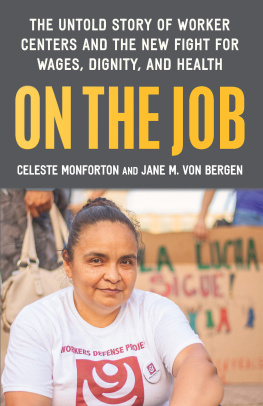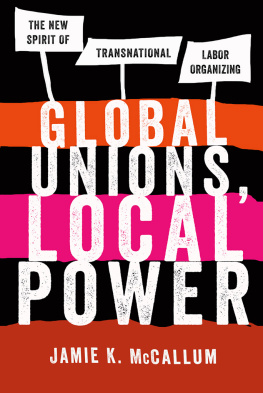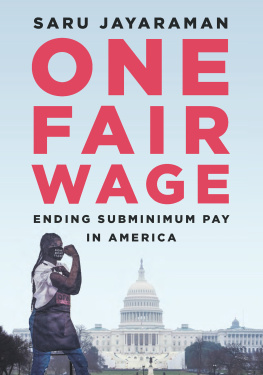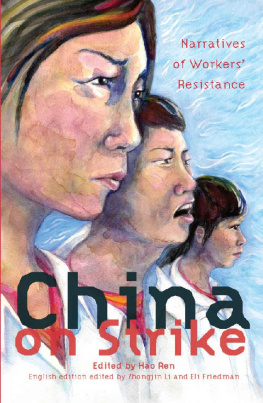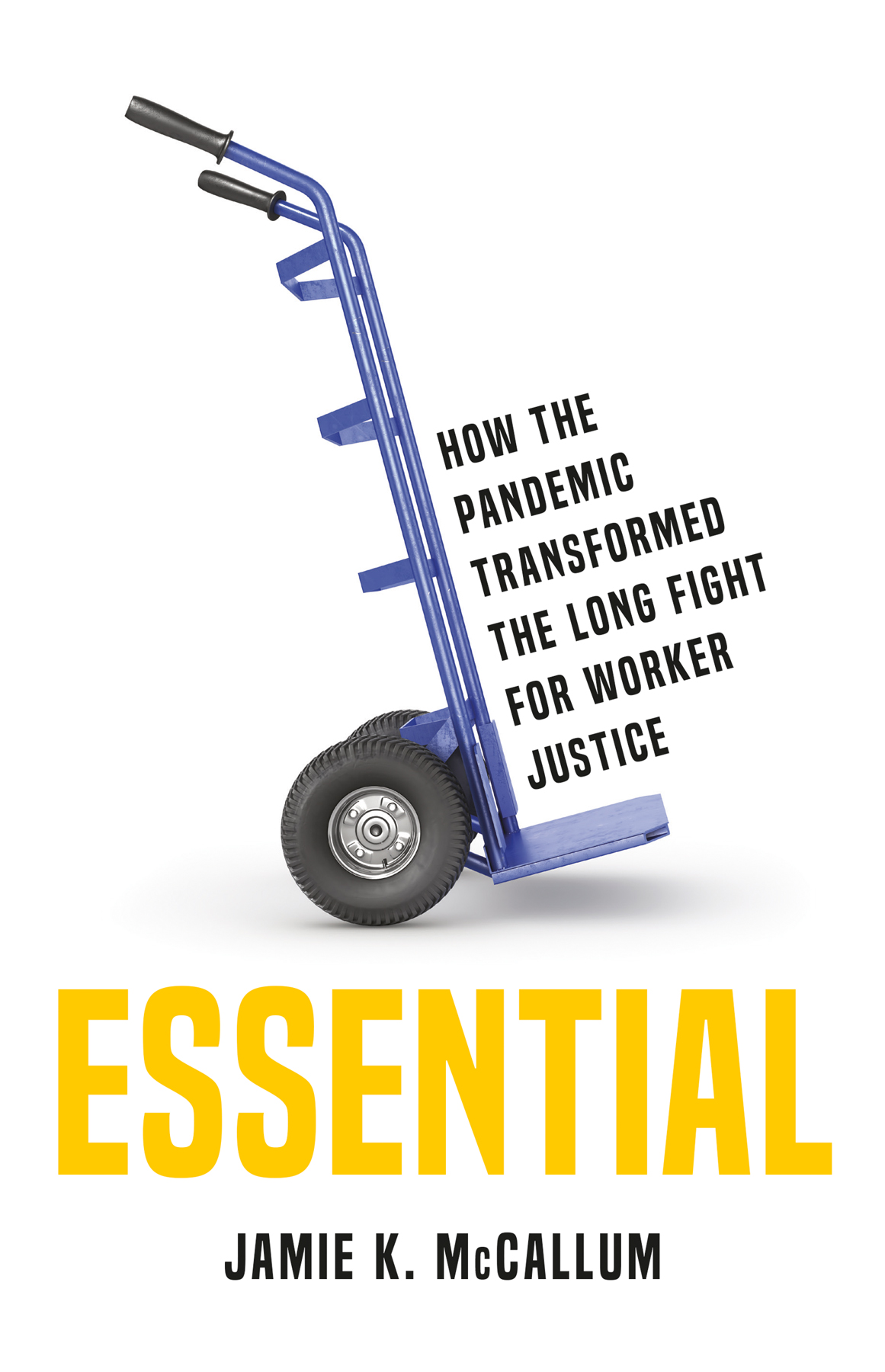Praise for
ESSENTIAL
Essential shows how we, essential workers, were sacrificed during the pandemichow we were told we were essential but not given workplace protections, how we had to choose between our jobs and keeping our families safe from the virus. Essential catalogs the increase in worker militancy during the pandemic, especially by Black and Brown workers who bore the brunt of the virus, police violence, and economic injustice. This book shows us without a doubt that labor struggles are racial justice struggles. Most importantly, Essential is a call to action: we need increased workplace militancy to challenge capitalism. As workers, our laborand our ability to withhold itis our power.
Chris Smalls, president and founder, Amazon Labor Union
Why the recent surges in union popularity and new organizing all across America? What stake do the rest of us have in these brave workers success? Jamie McCallum explains how we reached this moment and what the future could hold in an invigorating, urgent book that is, to borrow its title, essential reading.
Nancy MacLean, author of Democracy in Chains
By combining rich storytelling from the front lines of the pandemic and a deep historical lens, Essential brings to life a critical reality: Capitalism is quite literally killing us, and only through worker solidarity across our economy can we protect ourselves and advance our future.
Sara Nelson, international president, Association of Flight Attendants-CWA, AFL-CIO
In the early days of the pandemic, we cheered for essential workers. Today, their labor is again ignored by too many journalists and scholars. Not McCallum, who in Essential tells the gripping, deeply researched story of how millions were able to organize for change during the crisis. He reveals what these workers accomplished throughout the pandemic and what remains left undone, showing how worker power can help build us a better world.
Bhaskar Sunkara, author of The Socialist Manifesto
McCallum has written a wonderfully illuminating book. Its broad topic is rising inequality in the United States. But it takes a distinctive approach, homing in on the circumstances of the worst-off among usthe working people on whom we all depend. McCallum calls them the new servant class, and his documentation of their increasingly dangerous and difficult lives makes a powerful case for the imperative of radical reform. But by underlining the significance of care work, Essential also suggests the reforms to which we should aspire: a society based on equality, cooperation, and mutuality.
Frances Fox Piven, coauthor of Poor Peoples Movements
Essential is a compelling, in-depth look into the heroism of the nations frontline workers during the pandemic. Millions of long-underappreciated workerssupermarket cashiers, warehouse workers, fast-food cooks, meatpacking workerswere suddenly hailed as essential, but at the same time, corporate America treated them as expendable and exploitable. Well-researched and highly readable, Essential examines one of the most encouraging developments during the pandemic: many essential workers took to the streets, went on strike, protested, and organized to demand better treatment, stronger protections, and the respect they deserve. McCallum voices his hopes that this militancy could have transformed America, but he explains why it fell shortand what still needs to be done to lift Americas workers and create a far fairer, less exploitative economy.
Steven Greenhouse, author of Beaten Down, Worked Up
McCallum goes beyond the cliche that the pandemic revealed the existing fault lines and inequalities of our society. Rather, the dangers and burdens borne by essential workers are reshaping the fabric of social relations, creating new forms of exploitation and struggle. Closely observed and passionately written, Essential is a necessary intervention.
Gabriel Winant, author of The Next Shift
Worked Over: How Round-the-Clock Work Is Killing the American Dream
Global Unions, Local Power: The New Spirit of Transnational Labor Organizing
Copyright 2022 by Jamie K. McCallum
Cover design by Chin-Yee Lai
Cover image copyright urfin/Shutterstock.com
Cover copyright 2022 by Hachette Book Group, Inc.
Hachette Book Group supports the right to free expression and the value of copyright. The purpose of copyright is to encourage writers and artists to produce the creative works that enrich our culture.
The scanning, uploading, and distribution of this book without permission is a theft of the authors intellectual property. If you would like permission to use material from the book (other than for review purposes), please contact permissions@hbgusa.com. Thank you for your support of the authors rights.
Basic Books
Hachette Book Group
1290 Avenue of the Americas, New York, NY 10104
www.basicbooks.com
First Edition: November 2022
Published by Basic Books, an imprint of Perseus Books, LLC, a subsidiary of Hachette Book Group, Inc. The Basic Books name and logo is a trademark of the Hachette Book Group.
The Hachette Speakers Bureau provides a wide range of authors for speaking events. To find out more, go to www.hachettespeakersbureau.com or call (866) 376-6591.
Basic Books may be purchased in bulk for business, educational, or promotional use. For information, please contact your local bookseller or Hachette Book Group Special Markets Department at special.markets@hbgusa.com.
The publisher is not responsible for websites (or their content) that are not owned by the publisher.
Library of Congress Cataloging-in-Publication Data
Names: McCallum, Jamie K., 1977 author.
Title: Essential : how the pandemic transformed the long fight for worker justice / Jamie K. McCallum.
Description: First edition. | New York : Basic Books, 2022. | Includes bibliographical references and index.
Identifiers: LCCN 2022010468 | ISBN 9781541619913 (hardcover) | ISBN 9781541619906 (ebook)
Subjects: LCSH: Employee rightsUnited StatesHistory21st century. | Labor movementUnited StatesHistory21st century. | Medical personnel United States. | Service industries workersUnited States. | Industrial safety United StatesHistory21st century. | Industrial hygieneUnited StatesHistory 21st century. | EpidemicsSocial aspectsUnited States. | COVID-19 Pandemic, 2020 United StatesInfluence.
Classification: LCC HD8072.5 .M388 2022 | DDC 331.0973dc23/eng/20220714
LC record available at https://lccn.loc.gov/2022010468
ISBNs: 9781541619913 (hardcover), 9781541619906 (ebook)
E3-20220910-JV-NF-ORI
FOR TESSA
The crisis consists precisely in the fact that the old is dying and the new cannot be born; in this interregnum a great variety of morbid symptoms appear.
ANTONIO GRAMSCI
Prison Notebooks, vol. II, Notebook 3, 1930
I t was late A pril of 2020 in N ew Y ork C ity, and K im M oenich, a nurse, was on her way to work. The cherry blossoms sparkled in pink and white, the sun squinted through the rooftops, and it was that magical hour of day when everyone banged on pots and pans. Out their windows, on the sidewalks, leaning out of livery cabs, New Yorkers sang and yelled and raised a ruckus, a show of support for the healthcare heroes around the city.
The ritual had begun in Wuhan. Jiayou ! people yelled from their rooftops. Literally add oil, jiayou is colloquially used as a call of encouragement and fortitude. During the COVID-19 pandemic, the Chinese adopted it as a nationwide show of solidarity for the frontier workers, a remnant term from the lexicon of Maoism.



